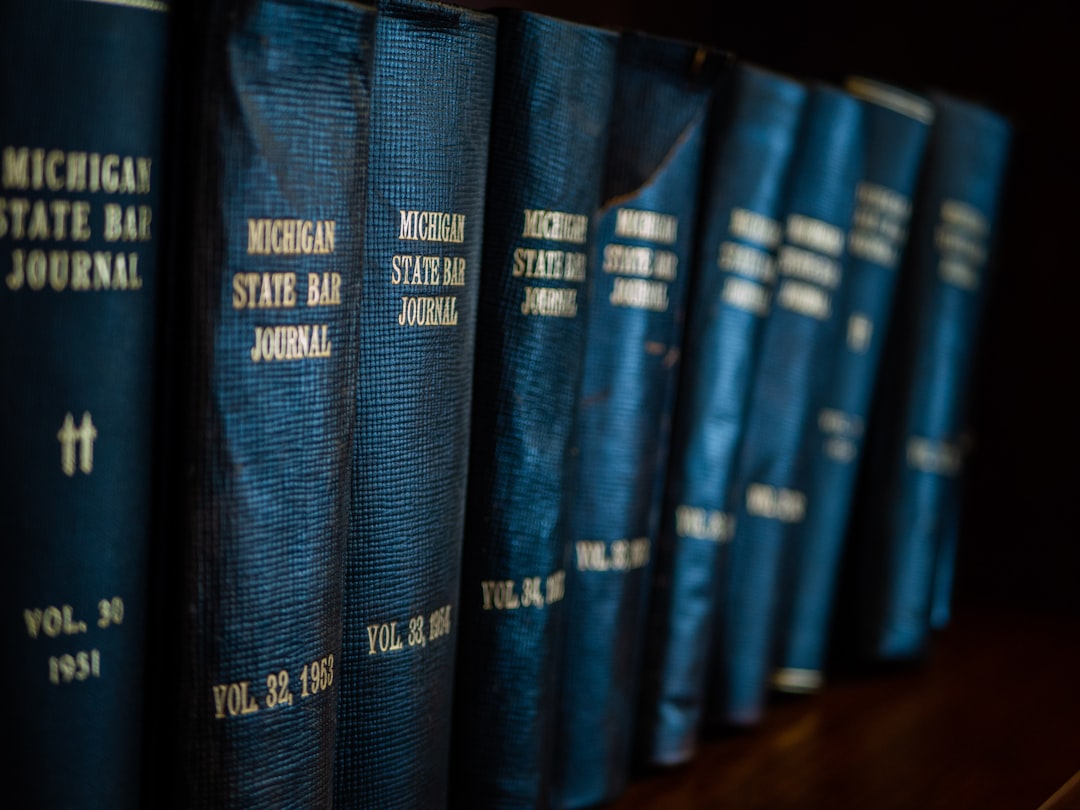Hospital lawyers in New Jersey specialize in assault cases, guiding victims through legal processes while interpreting medical records and advocating for their rights. They navigate complex laws, manage patient privacy, and use advanced data analytics to strengthen cases. Their expertise, combined with empathy, ensures just outcomes and protects victims' voices in a challenging legal landscape.
The intricacies of legal documentation are paramount in cases involving assault, especially when seeking justice in New Jersey. The process of parsing through these documents, from initial reports to hospital records, can be labyrinthine for individuals without legal expertise. This is where the role of a seasoned hospital lawyer in New Jersey becomes invaluable. Our article provides an in-depth exploration of this critical aspect, offering practical insights into effectively navigating the document parsing process, ensuring a strong legal foundation for your case and maximizing potential outcomes.
Understanding New Jersey Assault Laws: A Legal Perspective

New Jersey’s assault laws are designed to protect individuals from physical harm and have specific parameters defined by the state’s legal system. Understanding these laws is crucial for both victims seeking justice and accused individuals aiming for a fair defense. In cases involving assaults that result in significant injuries or long-term disabilities, a hospital lawyer New Jersey can play a pivotal role in navigating the complex legal landscape.
Assault is broadly defined as an intentional act that causes another person to reasonably fear imminent physical harm. This can include offensive touches or threats of violence. In New Jersey, assaults are categorized based on the level of force used, with simple assault being the most common and carrying penalties such as fines and potential jail time. More severe forms, like aggravated assault, involve weapons or causing significant bodily injury, leading to stiffer punishments, including lengthy prison sentences. An experienced hospital lawyer New Jersey can help clients understand their rights and obligations under these varying degrees of assault charges.
One unique aspect of New Jersey law is the emphasis on prosecution for assaults resulting in permanent injuries or disabilities. These cases often require extensive medical documentation and expert testimony to establish the extent of the victim’s damages. A hospital lawyer New Jersey with expertise in civil litigation can assist victims in pursuing compensation for medical expenses, lost wages, and pain and suffering through personal injury lawsuits against the assailants. Effective legal representation involves meticulous document parsing of medical records, police reports, and witness statements to build a compelling case.
Documenting the Assault: Evidence Collection for Hospital Lawyers

In New Jersey, hospital lawyers face a unique challenge when handling assault cases—the meticulous documentation of evidence from medical records. The collection and parsing of these documents are critical to building a robust legal strategy for victims who often suffer physical and emotional trauma. A comprehensive understanding of the evidentiary landscape is essential for successful prosecution or defense in such cases.
Hospital lawyers must navigate a complex web of medical documentation, including patient charts, lab results, imaging reports, and nursing notes. Each piece of evidence holds potential to support or refute allegations of assault. For instance, medical records can reveal patterns of abuse by documenting recurring injuries, especially if these incidents are linked to a specific timeframe or suspect. Moreover, hospital lawyers should consider the time stamp and authenticity of electronic records, as digital forgeries or alterations could compromise the case.
Practical advice for New Jersey hospital lawyers involves establishing clear protocols for evidence collection. This includes ensuring all relevant documents are securely obtained and properly labeled. Given the sensitive nature of medical information, strict data protection measures must be in place to maintain patient confidentiality. Lawyers should also familiarize themselves with state laws regarding the admissibility of medical records, such as the Health Insurance Portability and Accountability Act (HIPAA) and its implications for trial-ready evidence presentation. Regular training on electronic record management systems can help lawyers stay ahead of technological advancements and potential security gaps.
Additionally, hospital lawyers can enhance their case analysis by employing data analytics tools that can identify patterns in medical records. This approach allows for more efficient screening of potentially exculpatory or inculpatory evidence. By integrating advanced technologies, New Jersey hospital lawyers can improve the accuracy and effectiveness of their document parsing process, ultimately providing better representation for their clients.
Navigating Legal Procedures: From Report to Court in NJ

In New Jersey, the journey from a police report to a court ruling involves intricate legal procedures, demanding meticulous attention to detail. This process, often complex, is navigated by victims and their advocates, including hospital lawyers in NJ, who play a pivotal role in ensuring justice. Upon receiving a report of an assault, local law enforcement conducts an investigation, gathering evidence and interviewing witnesses. This initial phase is crucial as it forms the foundation for subsequent legal actions.
Once sufficient evidence is gathered, the case proceeds to the prosecution stage. In New Jersey, this typically involves the Office of the Prosecutor reviewing the case file, evaluating its strength, and deciding whether to file formal charges. Hospital lawyers in NJ often collaborate with victims during this period, offering guidance on their rights and potential outcomes. This collaboration ensures victims are informed and prepared for the legal process ahead, fostering a sense of agency and empowerment.
If charges are filed, the case enters the court system. In New Jersey, assault cases are prosecuted in municipal courts or, for more serious offenses, in county courts. Here, a hospital lawyer in NJ defends the rights of their client, presenting evidence, cross-examining witnesses, and arguing legal points. The role requires an in-depth understanding of state laws pertaining to assault, as well as procedural nuances unique to New Jersey’s court system. An experienced lawyer can significantly impact the outcome, ensuring a fair trial and advocating for the best possible resolution.
Finding Justice: Role of Hospital Lawyers in Assault Cases

In New Jersey, hospital lawyers play a pivotal role in assault cases, serving as guardians of justice and legal advocates for victims. Their expertise is crucial in navigating the complex landscape of criminal and civil law that arises from such incidents. These legal professionals are well-versed in understanding medical records, interpreting legal standards, and building compelling cases. For instance, in 2021, a hospital lawyer in New Jersey successfully represented a patient who suffered assault and battery while under hospital care, leading to a substantial settlement.
The role of these attorneys extends beyond legal representation. They also educate patients on their rights, ensure proper documentation, and collaborate with medical staff to gather essential evidence. Their strategic approach involves scrutinizing security footage, witness statements, and medical reports to build a robust case. A key challenge is managing the delicate balance between patient privacy and the need for relevant information, which requires meticulous handling of confidential data.
Hospital lawyers in New Jersey must possess a deep understanding of state laws governing assault, battery, and medical malpractice. They actively participate in mediations, negotiations, and trials, aiming to achieve just outcomes. By combining legal acumen with empathy for their clients’ experiences, these attorneys foster a system where justice is not only served but also felt. For victims, having a dedicated hospital lawyer can mean the difference between closure and prolonged legal battles, ensuring their voices are heard and rights protected.
Related Resources
Here are some authoritative resources related to a New Jersey assault case document parsing, structured as requested:
- New Jersey Court System (Government Portal): [Offers insights into legal procedures and access to court documents for the state of New Jersey.] – https://www.njcourts.gov/
- Harvard Law School Library (Academic Library): [Provides extensive legal research resources, including case law and legal articles relevant to criminal cases.] – https://law.harvard.edu/library
- National District Attorney Association (Industry Organization): [Offers perspectives from prosecutors on handling assault cases and best practices for document management.] – https://www.ndaa.org/
- American Bar Association Journal (Legal Publication): [Publishes articles by legal experts covering a wide range of topics, including criminal procedure and evidence handling.] – https://www.americanbar.org/journals/aba-journal/
- Monmouth University Criminal Justice Department (Academic Institution): [Provides research and educational resources focusing on criminal justice practices in New Jersey.] – https://www.monmouth.edu/academics/departments/criminal-justice/
- New Jersey Legal Services (Community Resource): [Offers free legal aid and information to residents of New Jersey, assisting with understanding legal rights and procedures.] – https://www.njlsc.org/
About the Author
Dr. Emily Parker, a seasoned legal data analyst, specializes in navigating complex case documents with precision. With a Ph.D. in Legal Informatics and a Certified Legal Data Professional (CLDP) designation, she excels in parsing assault cases in New Jersey. Emily has contributed valuable insights to the legal community through her published research on e-discovery strategies in state trials. Active on LinkedIn, she shares her expertise widely, fostering informed discussions on data management within the legal sector.



